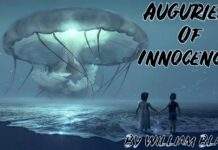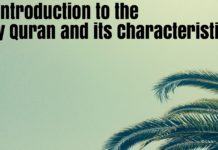Comparison Between Songs Of Innocence And Experience By William Blake
Territory of Childhood
Table of Contents
Songs of Innocence commend the unconstrained delights of adolescence. The suddenness of these tunes is the immediacy of craftsmanship not of nature, of creative mind not of involvement. There is minimal here to help us to remember the opposite condition of involvement that Blake will treat later in the Songs of Experience. Only the most perfect creative mind could offer us to the impeccable picture of adolescence, in which the dissatisfaction and disillusionment that one meets in development have not yet had their vitiating impact. Blake recovers the kid’s brain. He accumulates the blossom with the dew upon it.
He doesn’t expound on a youngster’s joy; he turns into the upbeat kid himself. There is no bogus tone in the voice. The youngster, for Blake, is an image of effortlessness and recency. At the point when the kid develops into masculinity, the methods of the world, its traditions and rules, and the entire assortment of choking impacts, close in upon him, however, the artist envisions the kid to be liberated from every one of these impacts. In the condition of guilelessness, man is by all accounts near God himself.

Actually, God is overseeing his undertakings, and no damage can actually come to him. In the condition of honesty, even wild creatures like wolves and tigers become subdued and as opposed to remorseless, they care for the guiltless ones. This becomes in sonnets like Night. In this sonnet, the blessed messengers shield powerless animals from the monsters of prey. They go to considerable lengths to visit the caverns of these monsters of prey and see that they don’t do viciousness. It is just in this expression that the tiger can rest next to the sheep and rest:
For, washed in life’s stream,
My splendid mane for ever
Will sparkle like the gold,
As I monitor o’er the overlay.
Province of Innocence (Comparison Between Songs Of Innocence And Experience)
In the condition of honesty, the youngster might be seen utilizing his instinctive creative mind to appreciate his general surroundings. The soul of the Songs is set in the Introduction:
Hushing up the valleys wild,
Channeling melodies of lovely merriment,
On a cloud I saw a kid,
Also, he giggling said to me,
This is evidently a straightforward sonnet, yet it shows the premise of Blake’s way of thinking, as communicated in these melodies. On the off chance that we search for a second beneath the surface, we can see how over the span of even the primary section, the artist changes from a practically agnostic upbeat forsake to Christian imagery. This sonnet closes with the artist composing his
…..happy tunes
Each youngster may euphoria to hear.
Representative
Melodies of Innocence are emblematic. The sheep is an image of “the appendage of the God that taketh away the transgression of the world.” The Echoing Green isn’t just the record of an upbeat day, it is a representative introduction of a day of guilelessness from sun-ascend to sunset. The Little Black Boy and the Laughing Songs represent the three phases of honesty: Infancy, Childhood, and Youth. Attendant’s Songs and The Holy Thursday are representative of similar three periods of man. Yet, this time these three phases are being portrayed according to society. In the Songs of Innocence, the images pass on an uncommon sort of presence or condition of the soul. In this state, people have a similar sort of security and affirmation as a place with sheep under a savvy shepherd or to kids with cherishing guardians. Nor is it false to state that both the shepherd and the dad of Blake’s sonnets is God. It is He who is Himself a sheep and turns into a small kid, who looks after resting kids and gives his affection to smokestack sweepers and minimal dark young men. In the parenthood of God, Blake’s characters have equivalent rights and benefits. Be that as it may, by it he implies not exactly what standard Christians do. Blake, notwithstanding his profoundly strict nature, didn’t accept that God exists separated from man.
Province of Experience (Comparison Between Songs Of Innocence And Experience)
Songs of Experience are the sonnets having a place with that time of man’s improvement which succeeds the cheerful condition of blamelessness and takes its structure in unpleasant disappoint, and caused by moral shows and hard social real factors. The cheerful and certain kid turns into the boring grown-up; the euphoric lady turns into the hard-worked housewife; the optimistic youth turns into a man of the world with every one of its limitations and prevention. Benevolence, piety, harmony and love, and the heavenly nature of the human heart and the face, presently don’t influence men and portray their activities. All things considered, mercilessness has a human heart and desire has a human face; the heavenly human structure currently comes to expect fear.
Everything in the Songs of Experience comes to get an extreme consciousness of the bodily reality, and it Is this mindfulness, more than all else, which isolates insight from blamelessness. We have division and partition instead of congruity and solidarity. The faculties are repressed inside a human edge. Man is isolated from man; the deed is isolated from intention. No delight is unconstrained and the writer consistently abandons the consideration of an assessment of the ulterior intentions and motivations behind the activity. At the point when the youngster rested in honesty, “all creation dozed and grinned,” and the grin of the kid would “boggle” paradise and earth.
Buy Books Suggested By Experts
The guiltlessness of the kid was the tranquility of the earth. In Experience, there is no solidarity between the youngster with the all-inclusive. no look of God in the baby’s eyes. The very grins of the kid breed friction: “Baby wiles and newborn child grins/Heaven and earth of harmony dumbfound.” The very birth of the kid comes as an extraordinary catastrophe to the guardians. “My mom moaned! my dad sobbed/Into the hazardous world I jumped:/Helpless, bare, channeling uproarious:/Like a monster covered up in a cloud.”
In the condition of involvement, the entire creation is filled with the plague of suppression, and the sound of thunder and material conflict echoes through these tunes. Age and early stages convey insight. Old John with his white hair snickered away his considerations in concordance with the youthful in the province of Innocence. In any case, this amicability with the satisfaction has all disappeared. Indeed, even parental love is harsh and preist-like. There is a miserable longing for delight with respect to the youngsters and unimaginable journey. In Experience, the cleverness of information incomprehensibly administers the drive of blamelessness, and the youngster is aware of their different presence. The young and the lady will become definitely old, and will repeat their dad:
Goodness the bleak consideration!
That shakes the blooms of my aged hair!
The quest for Innocence closes in dissatisfaction and the disdain of servitude:
For what reason should I be bound to thee,
O, my stunning mirtle tree?
REGRESSION, SEPARATION, Division, ETC.
Blake’s introduction of the universe of ‘Experience and restraint and partition is legitimately identified with his origination of the beginning of that universe in division and partition in the first demonstration of Urizen, as he isolated and estimated in his nine-overlay dimness.” In the Songs of Experience humankind never assembles into a network; division is there all over the place. Exist anymore green, which was the common gathering place, where the youngsters and mature met up in blamelessness, does not exists. Indeed, even in urban areas, men are disconnected, one from the other, in independent “gardens.“
In ‘Experience’, cold-bloodedness, restraint, self-centeredness, and misuse are the thing to take care of. In a great many sonnets, Blake lashes out at the brutal treatment that the general public provides for its more fragile areas. The stack sweeper needs to go about in the unpleasant chill giving out his expert cry. In unpleasant incongruity, Blake inquires as to whether this is the place that is known for freedom (England) where youngsters starve? The whores and poor people warriors are, similar to the smokestack sweepers the casualties of the brutal oppressive framework.
Prosecution of the Church
Yet, the bitterest of Blake’s arraignment is gotten by the Church and its clerics. The Church views itself as the overseer of human government assistance on earth, arrogating to itself the privilege of rescuing the human spirit. In any case, practically speaking, the congregation, as depicted in the Songs of Experience, develops the main reprobate. As opposed to doing any great to the individuals, it, actually, turns into the main instrument of murdering human delights. Its false reverence and remorselessness get certifiable in Blake’s sonnets. Its bad faith and pitilessness get world renowned in Blake’s sonnets. Inability to submit to its iron laws, which obviously, are coordinated against poor people and the under-special, implies barbarous demise. This nerve-racking picture, we go over in one of the sonnets in Songs of Experience.
“The Blossom” Poem Critical Appreciation By W. Blake



























